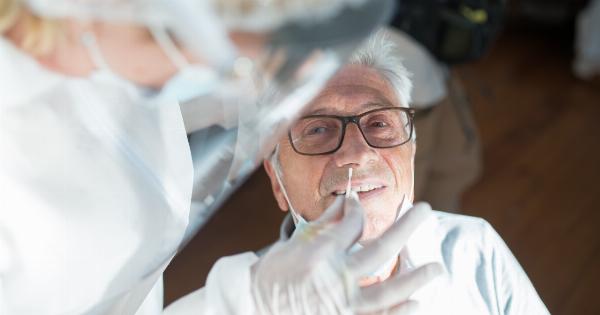Mucus is a sticky, gelatinous substance that is secreted by the lining of various passages in our bodies, including the nasal and neck passages.
While it may not be the most pleasant thing to think about, mucus plays a crucial role in protecting our bodies from harmful pathogens and keeping our airways moist and healthy.
Composition of Mucus
Mucus is primarily composed of water, glycoproteins, lipids, salts, and various types of cells. The glycoproteins, known as mucins, give mucus its sticky and viscous texture.
These mucins are responsible for trapping foreign particles such as bacteria, viruses, dust, and allergens that we inhale.
In addition to mucins, mucus also contains antimicrobial substances such as lysozyme, lactoferrin, and immunoglobulins. These substances help to destroy or inhibit the growth of pathogens, further enhancing the protective role of mucus.
Production of Mucus
The production of mucus occurs in specialized cells called goblet cells, which are scattered throughout the lining of the nasal and neck passages. They are also found in other parts of the respiratory and digestive systems.
When stimulated by various factors such as irritants, allergens, or infections, goblet cells initiate mucus production.
Goblet cells have a unique structure that allows them to secrete mucus. They contain abundant organelles called goblet granules, which house the mucins and other components of mucus.
When stimulated, these granules fuse with the cell membrane, releasing their contents and forming a layer of mucus on the surface of the passages.
The production and secretion of mucus are regulated by a complex interplay of signaling molecules, receptors, and neural pathways.
Factors such as inflammation, hormones, and neural signals from the brain can influence the amount and quality of mucus produced.
Role of Mucus in the Nasal Passages
In the nasal passages, mucus serves several important functions. It helps to filter and humidify the air we breathe, trapping particles and preventing them from reaching the delicate structures of the lungs.
Mucus also plays a crucial role in the sense of smell by capturing odor molecules and allowing them to interact with receptors in the nasal lining.
Furthermore, mucus acts as a protective barrier by preventing pathogens from entering our bodies. The sticky nature of mucus traps bacteria and viruses, preventing them from reaching the respiratory tract.
The antimicrobial substances present in mucus help to neutralize and destroy these pathogens, reducing the risk of infections.
Role of Mucus in the Neck Passages
Mucus in the neck passages, including the throat and trachea, helps to lubricate and protect these areas. When we swallow, mucus assists in the smooth passage of food and liquids down the esophagus.
It also helps to prevent irritation and damage from stomach acids in case of reflux.
Mucus in the neck passages also plays a vital role in coughing. When foreign particles or excess mucus accumulate in the airways, a reflex action known as coughing is triggered.
This forceful expulsion of air helps to clear the airways, removing any potential irritants or obstructions.
Problems with Mucus
While mucus is essential for our overall health, certain conditions can lead to an overproduction or alteration in its properties, causing discomfort and health problems.
Allergies, infections, and chronic respiratory conditions such as asthma can stimulate excessive mucus production. This can result in symptoms like a runny or blocked nose, postnasal drip, coughing, and difficulty breathing.
In some cases, excessive mucus can become thick and difficult to clear, leading to further complications.
In conditions like cystic fibrosis, the composition of mucus is altered due to a genetic defect. This abnormal mucus is thick and sticky, impairing its protective functions and causing recurrent infections.
Managing Mucus-related Problems
There are various ways to manage mucus-related problems. Nasal irrigation with saline solution can help to flush out excess mucus and alleviate nasal congestion.
Steam inhalation and humidifiers can also provide relief by moisturizing the airways and thinning the mucus, making it easier to expel.
Over-the-counter medications, such as expectorants and decongestants, can help to thin the mucus and promote its clearance.
In some cases, prescription medications may be necessary to address underlying conditions such as allergies or chronic respiratory disorders.
Conclusion
Mucus may not be the most glamorous topic, but it plays a crucial role in maintaining the health and functionality of our nasal and neck passages.
From trapping and neutralizing pathogens to lubricating and protecting our airways, mucus is a vital component of our defense mechanisms. Understanding the science behind mucus production and its functions can help us appreciate its importance and take appropriate measures to manage any related problems.






























